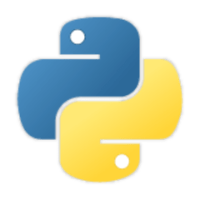🔨
Pythonで理解するコーディングアンチパターン
条件分岐編
if文のネスト
bad
age = int(input())
if age >= 0:
if age < 20:
print("You're a minor")
good
age = int(input())
if 0 <= age < 20:
print("You're a minor")
複雑な条件式に説明変数や関数抽出を行わない
bad
threshold = 60
score_limit = 100
math_score = int(input())
english_score = int(input())
science_score = int(input())
if threshold <= math_score <= score_limit and threshold <= english_score <= score_limit and threshold <= science_score <= score_limit:
print("You have passed all the subjects")
else:
print("You have not passed all the subjects")
good
def is_all_subjects_passed(*args):
threshold = 60
score_limit = 100
for score in args:
if not threshold <= score <= score_limit:
return False
return True
math_score = int(input())
english_score = int(input())
science_score = int(input())
if is_all_subjects_passed(math_score, english_score, science_score):
print("You have passed all the subjects")
else:
print("You have not passed all the subjects")
if-else文の否定文を先に記述
bad
savings = int(input())
if not savings > 0:
print("You have no savings")
else:
print("Your savings is {} yen".format(savings))
good
savings = int(input())
if savings > 0:
print("Your savings is {} yen".format(savings))
else:
print("You have no savings")
変数編
マジックナンバーを使う
bad
# ['6', '7', '8']だけでは、何を示しているのか分からない
if input() in ['6', '7', '8']:
print("It's summer now")
else:
print("It's not summer now")
good
month = input()
summer_seasons = ['6', '7', '8']
if month in summer_seasons:
print("It's summer now")
else:
print("It's not summer now")
定義した場所と使用する場所が離れている
bad
age = 15
# height,genderは二つ目以降のifで使われるため、ここで宣言する必要がない
height = 175
gender = 'man'
# 定数であるAVERAGE_HEIGHT_OF_MANについても、ここで宣言する必要がない
ADULT_AGE = 20
AVERAGE_HEIGHT_OF_MAN = 170
if 0 <= age <= ADULT_AGE:
print("You're a minor")
else:
print("You're not a minor")
if height >= AVERAGE_HEIGHT_OF_MAN:
print("You're taller than average height")
else:
print("You're shorter than average height")
if gender == "man":
print("You are a man")
elif gender == "woman":
print("You are a woman")
else:
print("Gender isn't just male and female, is it?")
good
age = 15
ADULT_AGE = 20
if 0 <= age <= ADULT_AGE:
print("You're a minor")
else:
print("You're not a minor")
height = 175
AVERAGE_HEIGHT_OF_MAN = 170
if height >= AVERAGE_HEIGHT_OF_MAN:
print("You're taller than average height")
else:
print("You're shorter than average height")
gender = 'man'
if gender == "man":
print("You are a man")
elif gender == "woman":
print("You are a woman")
else:
print("Gender isn't just male and female, is it?")
特定の関数でしか使わない変数をグローバルで定義
bad
class Person:
def __init__(self, name, age):
self.name = name
self.age = age
def introduce_yourself(self):
print("=========================")
print("My name is {}".format(self.name))
print("I'm {} years old now".format(self.age))
print("=========================")
person = Person("kite", 15)
person.introduce_yourself()
# personクラスの変数を書き換えられてしまう。
person.name = "michel"
person.age = 35
person.introduce_yourself()
=========================
My name is kite
I'm 15 years old now
=========================
=========================
My name is michel
I'm 35 years old now
=========================
good
class Person:
def __init__(self, name, age):
self.__name = name
self.__age = age
def introduce_yourself(self):
print("=========================")
print("My name is {}".format(self.__name))
print("I'm {} years old now".format(self.__age))
print("=========================")
person = Person("kite", 15)
person.introduce_yourself()
person.__name = "michel"
person.introduce_yourself()
=========================
My name is kite
I'm 15 years old now
=========================
=========================
My name is kite
I'm 15 years old now
=========================
発音しにくい命名
bad
# Dictionary for managing personal informationの略であるが、読みにくく分かりにくい
dfmpi = {"name":"taylor", "age":20}
print("My name is {}".format(dfmpi["name"]))
print("I'm {} years old".format(dfmpi["age"]))
good
# Dictionary for managing personal information
personal_info = {"name":"taylor", "age":20}
print("My name is {}".format(personal_info["name"]))
print("I'm {} years old".format(personal_info["age"]))
検索しにくい命名
bad
import datetime
dt = datetime.datetime.now()
# 検索欄でvariableの候補が最低でも3つ出ることとなり、煩雑となる
variable_for_current_second = dt.second
variable_for_current_minute = dt.minute
variable_for_current_hour = dt.hour
print("{}時{}分{}秒".format(variable_for_current_hour, variable_for_current_minute,
variable_for_current_second))
good
import datetime
dt = datetime.datetime.now()
sec = dt.second
min = dt.minute
hour = dt.hour
print("{}時{}分{}秒".format(hour, min, sec))
関数編
同じ処理を関数にせず複数箇所に記述
bad
spring_season = [3, 4, 5]
summer_season = [6, 7, 8]
fall_season = [9, 10, 11]
winter_season = [12, 1, 2]
season = None
month = int(input())
if month in spring_season:
season = "spring"
elif month in summer_season:
season = "summer"
elif month in fall_season:
season = "fall"
elif month in winter_season:
season = "winter"
print("Current season is {}".format(season))
next_month = int(input())
if next_month in spring_season:
season = "spring"
elif next_month in summer_season:
season = "summer"
elif next_month in fall_season:
season = "fall"
elif next_month in winter_season:
season = "winter"
print("Next month's season is {}".format(season))
good
def get_current_season(month):
spring_season = [3, 4, 5]
summer_season = [6, 7, 8]
fall_season = [9, 10, 11]
winter_season = [12, 1, 2]
season = None
if month in spring_season:
season = "spring"
elif month in summer_season:
season = "summer"
elif month in fall_season:
season = "fall"
elif month in winter_season:
season = "winter"
return season
month = int(input())
print("Current season is {}".format(get_current_season(month)))
print("Next month's season is {}".format(get_current_season(month + 1)))
関数名から何をするか分からない
bad
class Dog:
def __init__(self, name, age):
self.__name = name
self.__age = age
# get,setだけでは、何に対してgetし、何に対しsetするか分からない
def get(self):
return self.__name
def set(self, name):
self.__name = name
good
class Dog:
def __init__(self, name, age):
self.__name = name
self.__age = age
def get_name(self):
return self.__name
def set_name(self, name):
self.__name = name
引数にbooleanを渡す
bad
def calculate_annual_income( is_there_bonus, saraly, monthly_benefit):
all_months = 12
total_saraly = salary * all_months
yearly_benefit = monthly_benefit * all_months
annual_income = (total_saraly + yearly_benefit) * 0.8
# この時点で年収計算しているのに、booleanがあることでボーナスがあるか否かの判定もしなければならない。
if is_there_bonus:
bonus_magification = 2.5
annual_income += salary * bonus_magification
return annual_income
good
def calculate_annual_income(bonus, saraly, monthly_benefit):
all_months = 12
total_saraly = salary * all_months
yearly_benefit = monthly_benefit * all_months
annual_income = (total_saraly + yearly_benefit) * 0.8 + bonus
return annual_income
関数が複数のことをしている
bad
import math
# ざっくりと面積を計算するメソッドのため、多くのことを許容してしまっている
def calculate_area(bottom, upper_bottom, height, radius):
assert bottom * upper_bottom * height * radius > 0
triangle_area = bottom * height / 2
trapezoid = (bottom + upper_bottom) * height / 2
circle = radius**2 * math.pi
return triangle_area, quadrilateral, trapezoid, circle
good
import math
def calculate_traiangle_area(bottom, height):
return bottom * height / 2
def calculate_trapezoid_area(bottom, upper_bottom, height):
return (bottom + upper_bottom) * height / 2
def calculate_circle(radius):
return radius**2 * math.pi


Discussion